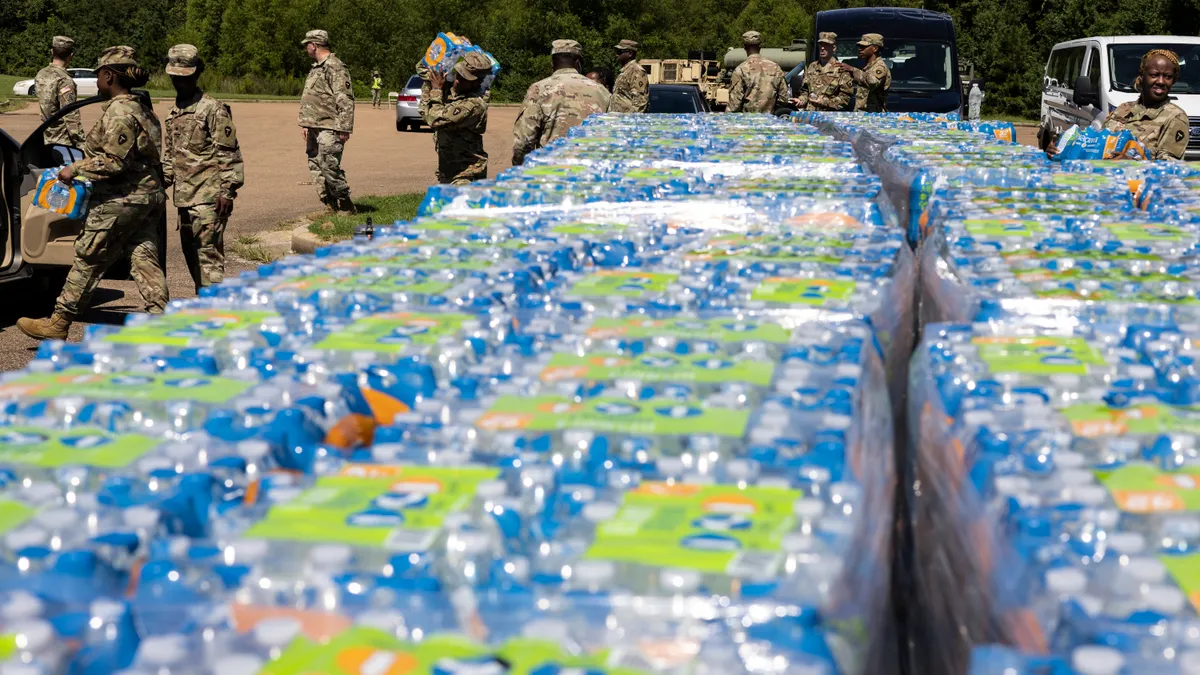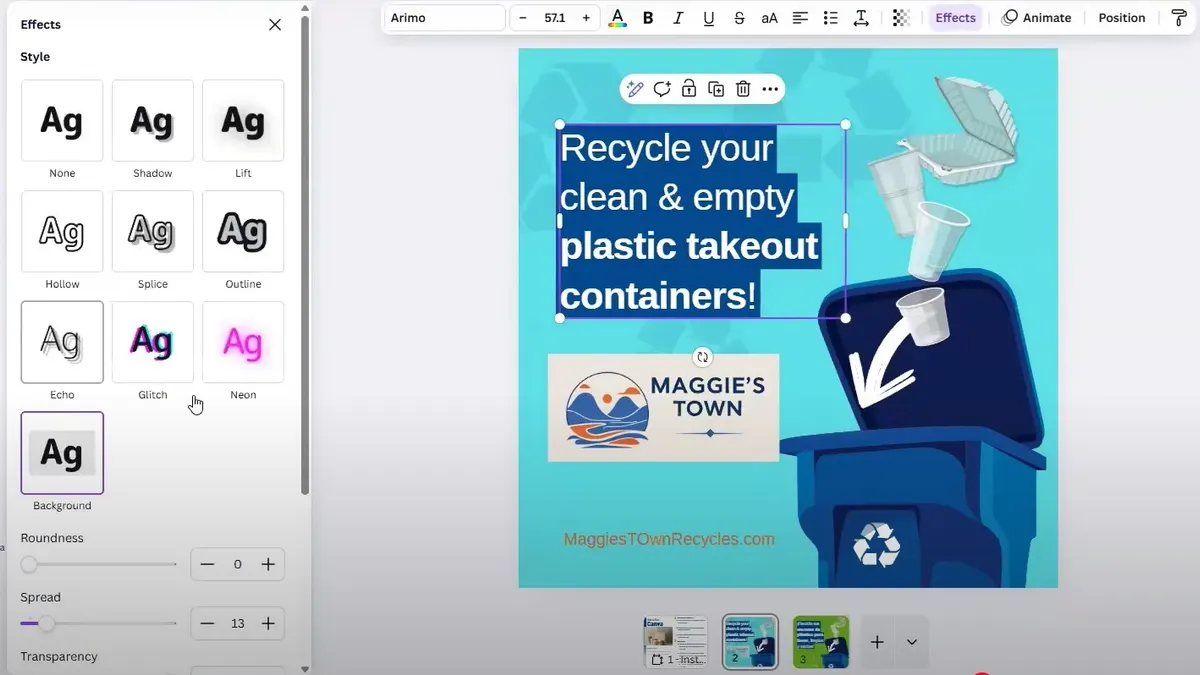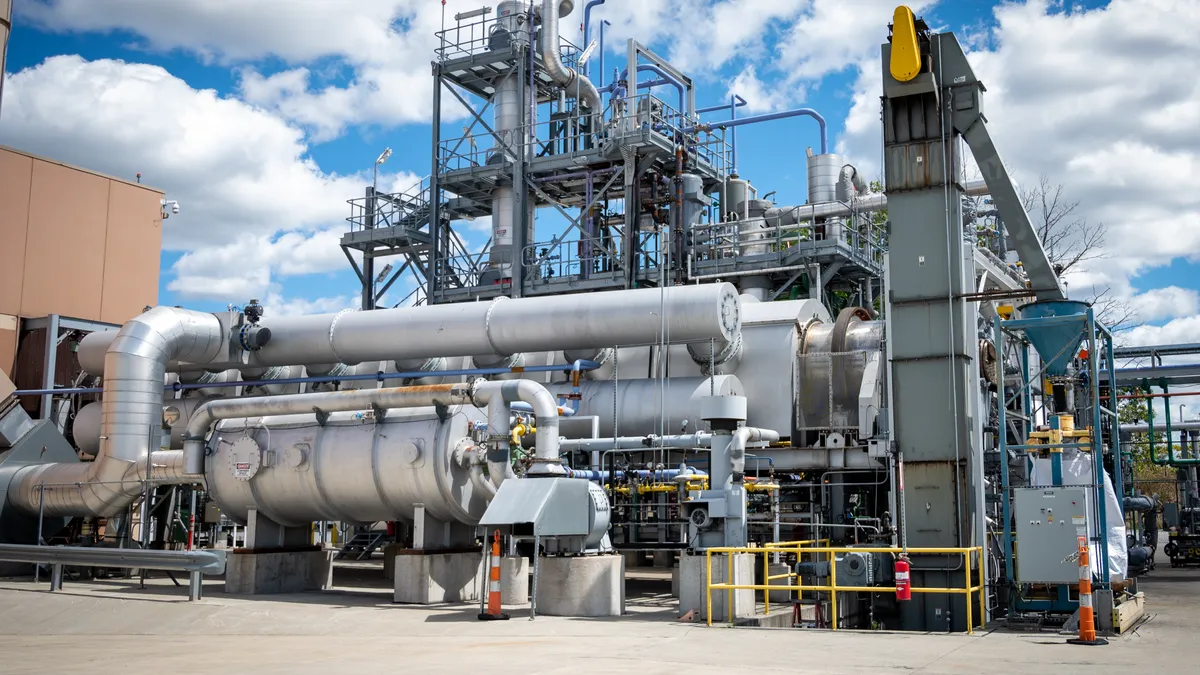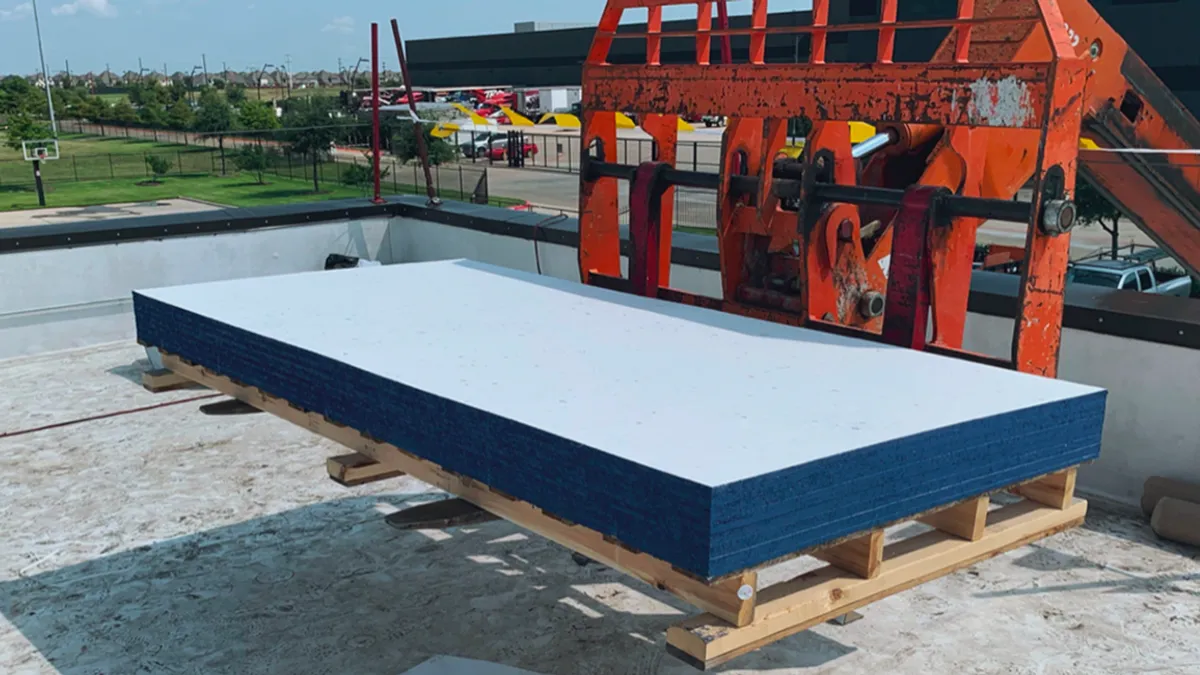Jackson, Mississippi — which has not had a curbside recycling program since 2019 — was not prepared for the surge in plastic bottles that came with its recent drinking water crisis. Local groups that partnered to recycle the material hope to segue the crisis response into a longer-standing collection solution.
Mississippi officials this past week lifted a boil water notice that had been in effect for the capital city since the end of July. The move triggered the end of state-led distribution of water in plastic bottles. Between the Aug. 30 emergency declaration and the Sept. 15 advisory change, the Mississippi National Guard delivered around 11 million bottles to residents of Jackson and surrounding areas, according to the governor.
Plastic water bottles may continue to abound, however. Jackson’s most recent drinking water issues largely stemmed from heavy rainfall that put pressure on an already struggling water treatment system and had a domino effect on quality and supply, fueling worries about harmful bacteria. Despite the recent advisory change, many residents’ distrust of tap water remains. And a state health official cautioned not to use it for baby formula.
To mitigate the secondary waste problem during the drinking water crisis, multiple area groups have worked together in recent weeks to add collection sites, targeting the locations where the water has been distributed.
Keep Jackson Beautiful, Replenysh, and local recycling business EnvironMentality partnered to collect bottles from what’s currently a list of 20 public and private locations.
Replenysh — a California-based startup that shares tools with municipalities to help them create revenue-generating recycling collection sites — at the beginning of this week said 1,650 pounds of PET plastic bottles had been collected over the course of two weeks, with collection ramping up as word spread. EnvironMentality facilitates collection and uses Replenysh’s tools to manage pickups, then sells baled material to Replenysh’s network of reprocessing mills. Replenysh’s brand partners receive the raw materials to manufacture into new bottles.
While Replenysh was initially focused solely on the plastic bottles, the distribution sites also turned their attention to recycling the cardboard and shrink packaging related to bottle distribution, said founder Mark Armen.
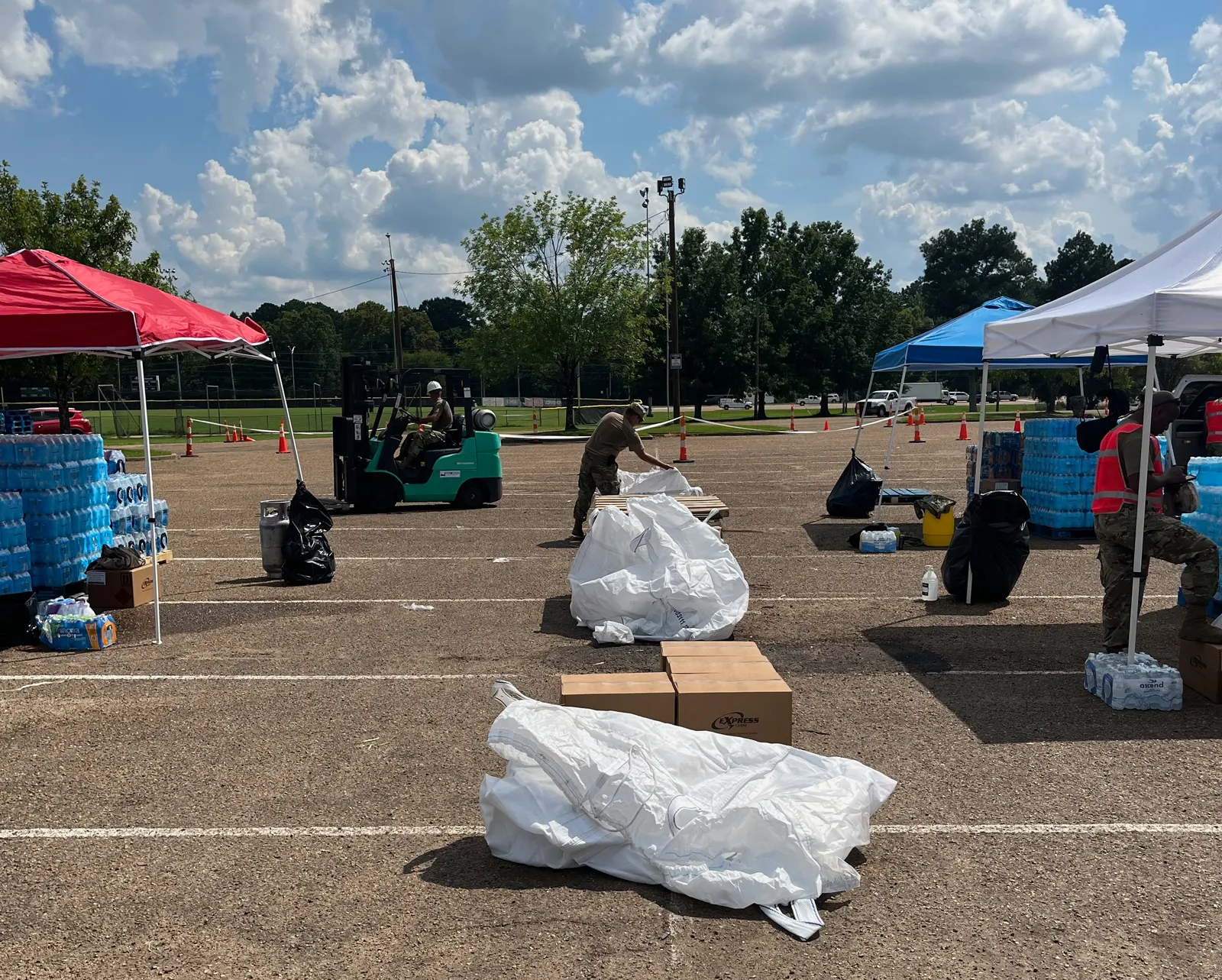
What’s next in Jackson and for crisis operations elsewhere
Prior to the water crisis, Replenysh had been working with Keep Jackson Beautiful to open recycling collection locations. Some of the sites, like schools, where the partners have been picking up recyclables in recent weeks could become more permanent sites.
While Keep Jackson Beautiful and EnvironMentality have largely been facilitating operations in Jackson, Replenysh has had individuals on the ground for the past three weeks, Armen said. “Crises like these were never on my radar,” he said. “But now that we've done them, we're discussing, ‘How do we develop a crisis toolkit or a crisis team so that we can stand these things up as fast as we've done in Jackson?’”
During Flint, Michigan’s lead water crisis, which began in 2014, public-private partnerships that stepped up to manage packaging waste were effective, a Purdue University study found. Researchers talked to the city, state environmental regulators, Republic Services and Schupan Recycling through that process.
But the situation also highlighted the lack of attention to waste management in some emergency plans. Recommendations from the study included proactively identifying the roles of waste management organizations, implementing a way to estimate and document how much material is entering and leaving a community and pre-planning public notifications about waste management activities.
Ed Ferguson, chief sustainability officer at BlueTriton Brands, said the company sent $5 million worth of water to Flint from 2016 through this year. “But recycling is much worse in Jackson, Mississippi, than it was when we were donating a lot of water to Flint,” Ferguson said. “So we looked at that and [thought], ‘Well, a lot of these bottles aren't going to be going to the places we want because we want the material to be coming back in a circular manner.’”
BlueTriton sent 300,000 water bottles to Jackson during the crisis and is taking steps to support collection in these types of situations moving forward, Ferguson said.
The Federal Emergency Management Agency has also indicated it’s purchasing more boxed water with a 10-year lifespan for storage in distribution centers. FEMA cites boxed water being a superior option because it lasts longer than bottled water with a two-year shelf life. There’s also closer cost parity today between plastic bottles and boxes, it said.
Armen believes the situation in Jackson offers lessons on future disaster response and on quickly creating recycling infrastructure in areas that need it in general.
“The fact that we've done this in a crisis mode, in a matter of weeks, matter of days, informs [us] that, yes, we can do it in other crises, and that's something that I'm thinking about now and allocating resources toward, but then also it informs how we can just [ramp up in non-crisis mode],” he said.



